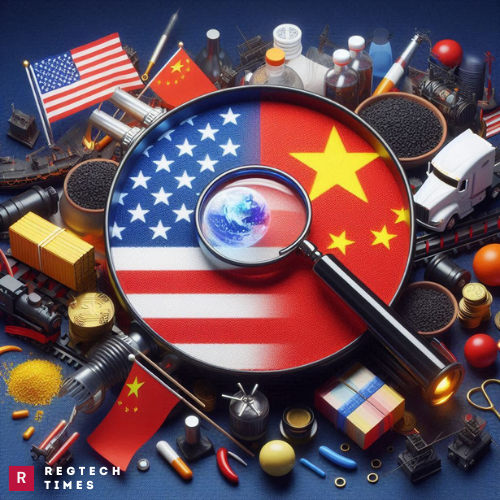In a swift response to the new tariffs imposed by the United States, China has unveiled a series of retaliatory actions, including tariffs on several important American goods. This move marks the opening salvo of a new trade conflict between the two global powers, with potential impacts for countries and businesses worldwide.
The United States recently announced tariffs of 10% on a wide range of goods imported from China. These tariffs, effective immediately, aim to make Chinese products more expensive for American buyers. However, China didn’t take long to retaliate. Within moments of the US tariffs going into effect, China responded by slapping new taxes on key American exports, including coal, liquefied natural gas (LNG), and crude oil. These goods now face tariffs of 15% and 10% respectively, which will likely affect the cost of these resources for countries around the world.
In addition to these trade measures, China also targeted specific American industries. It imposed tariffs on farm equipment, large vehicles, and pickup trucks, all of which are important products in the American economy. This move has raised concerns about the impact on American farmers and manufacturers who rely on exporting their goods to China.
Panama Says No to China: Belt and Road Agreement Will Not Be Renewed
Google Faces Investigation Amid Growing Tensions
Alongside the tariffs, China launched an investigation into Google, one of the world’s largest tech companies. This investigation is a significant move, considering the global influence that Google holds in the world of technology. The Chinese government announced that it would look into Google under the country’s anti-trust laws, which aim to ensure fair competition in the market.
This investigation adds a layer of tension to the already complex trade dispute. Many analysts believe that China is using its regulatory power to send a message to the US, signaling that it will take action against American companies that it sees as unfairly benefiting from China’s markets. The outcome of this investigation is still unclear, but it could potentially have major consequences for Google’s operations in China, as well as for other American companies doing business in the country.
China Expands Export Controls and Targets US Companies
China has also introduced new export controls on a variety of minerals critical to many industries, including tungsten, tellurium, and molybdenum. These minerals are essential for the production of electronics, machinery, and other high-tech products. By restricting the export of these minerals, China is effectively limiting access to vital resources for American companies, which could have a ripple effect across industries that depend on them.
Moreover, China has added two American companies—PVH Group and Illumina Inc.—to its “unreliable entity list.” This list is reserved for companies that China believes pose a threat to its national interests. Being added to the list could lead to restrictions or penalties against these companies, though China has not yet revealed the specific reasons for targeting them. PVH Group is known for its popular clothing brands such as Tommy Hilfiger and Calvin Klein, while Illumina specializes in biotechnology, including genetic sequencing.
China Warns US over Destructive Tariffs and Looming Sanctions
The move to add these companies to the unreliable entity list signals China’s intention to ramp up its trade actions against the US. It also raises concerns for other American businesses operating in China, as they may be worried about the potential for more companies to be added to the list in the future.
Retaliation and Tensions Grow
The announcement of these measures by China has further intensified tensions between the two countries. Both sides have been engaged in a back-and-forth trade war for months, with each side imposing tariffs on the other’s products. The current round of tariffs and investigations is just the latest chapter in this ongoing dispute.
The global economic community is watching closely to see how these tensions will develop. As both the US and China take measures to protect their own interests, the ripple effects of their actions are likely to be felt around the world. From higher prices for consumers to potential disruptions in global supply chains, the impact of this trade war is far-reaching.
For now, the US and China remain at odds, with each side firmly holding its ground. The next steps in this economic battle remain uncertain, but the situation continues to evolve rapidly, leaving many people wondering how it will all unfold.


